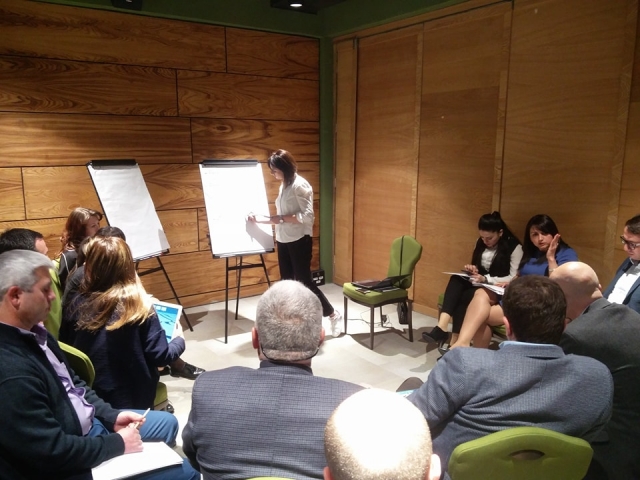German Society for Int'l Cooperation Holds E-Governance Conference
Getting a new passport can be a real pain if your country doesn’t have the necessary infrastructure. Losing a passport a couple of days before flying off to a different country exacerbates the situation heavily.
These two days, Tbilisi is the location of an international working conference for EU’s Eastern Partnership member states to discuss new ideas and innovations for e-governance.
Over 50 international experts from the EU, Germany, Georgia, Armenia, Azerbaijan, Belarus, Ukraine, and Estonia are exchanging their experiences in sectors such as electronic services and monitoring, smart city, and electronic engagement.
“The International Conference aims at establishing an effective international exchange network along with future cooperation in the field of e-governance in the EU Eastern Partnership countries. During the conference, cooperation plans will be discussed. The Conference format also hosts workshops for groups and issues related to the introduction of innovative technologies in the field of service delivery in participating countries,” announced GIZ, the German Society for International Cooperation.
Funded by the German Federal Ministry of Economic Cooperation and GIZ, the conference was officially started on 17 April and continues its work until the end of 18 April. Tbilisi was chosen as the location, as Georgia is the leading country in the sector with the newly constructed House of Justice as an exemplar of an efficient bureaucracy.
“Electronic services for citizens operate on a one-window basis in a transparent and high-quality manner, which is oriented towards citizens. Georgia is often visited by delegations of different countries to get a first-hand understanding of such models of effective service delivery. The success of Georgia in this field stems from the impeccable management, which Georgia implemented together with the construction of the House of Justice,” the GIZ explains the state-of-the-art public building in the center of Tbilisi.
All other partner countries aim at implementing similar infrastructure projects to achieve more efficient government agencies. Decentralization, transparency, and citizen-oriented services are the key focus areas in the field and are supported by the conference, as high official civil servants are able to exchange their project ideas with other states. The goal is that at the end of the conference, the respective governments are equipped with the necessary knowledge to implement new administrative reforms.
By Benjamin Music












